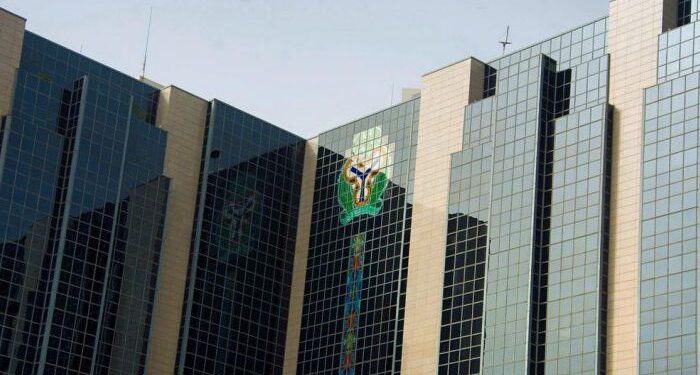As the Central Bank of Nigeria’s (CBN) deadline for capital restoration quietly lapses, financial analysts and banking insiders are warning of a looming period of tighter lending conditions across the country. The apex bank’s capital adequacy directive, which required several banks to shore up their balance sheets and restore minimum capital levels, is likely to trigger a wave of more cautious lending practices, especially from mid-tier and smaller banks that have struggled to meet the requirement.
The CBN’s directive, issued over a year ago, aimed to strengthen the resilience of Nigeria’s banking sector by ensuring that all deposit money banks met the minimum capital adequacy ratio (CAR) following increased market volatility and macroeconomic pressures. Banks were given a fixed window to recapitalize through fresh equity injections, retained earnings, or strategic restructuring. With that window now closed, industry players anticipate that lending standards will tighten considerably as banks prioritize risk management and compliance over rapid loan growth.

According to several sources in the financial services sector, some banks may scale back on credit issuance to high-risk borrowers, particularly small and medium-sized enterprises (SMEs), startups, and informal sector participants. These categories, though crucial to Nigeria’s economic vibrancy, are often viewed as high-risk due to the lack of reliable credit history, collateral, or business continuity guarantees. Bank credit committees, analysts say, are now more likely to apply stricter eligibility criteria, conduct deeper due diligence, and shorten the tenor of loan products to limit exposure.
Industry observers note that while the recapitalization deadline was intended to safeguard depositors and enhance the stability of the financial system, the unintended consequence could be a contraction in credit availability, particularly in sectors that rely heavily on bank financing for operational liquidity. With banks seeking to optimize their capital usage, large corporates and blue-chip firms with strong credit ratings may continue to enjoy access to facilities, while smaller borrowers could face longer wait times and tougher approval processes.
An economist with a leading Lagos-based investment firm said the central bank’s decision to push for capital restoration was justified in light of rising non-performing loans and inflationary pressures, but cautioned that the implementation period may not have been sufficient for all banks to comply without adjusting their credit risk appetite. “What we are likely to see is a wave of conservative lending,” he noted. “Banks will want to protect their capital buffers while ensuring their loan portfolios don’t put them back below regulatory thresholds.”
Several bank executives confirmed that internal reviews are ongoing, with many financial institutions already tightening risk controls. Some are introducing stricter Know-Your-Customer (KYC) and anti-money laundering (AML) checks, while others are recalibrating their loan-to-deposit ratios to avoid regulatory penalties. In some cases, loan approval timelines have doubled, particularly for unsecured credit products and overdraft facilities.
The CBN, in its last public commentary on the issue, reiterated that recapitalization was not intended to stifle credit but to ensure that banks remain solvent and capable of absorbing economic shocks. A senior CBN official, who declined to be named, said the regulator is closely monitoring the market to ensure that banks comply without unduly suppressing credit growth. “We expect banks to act prudently. Capital adequacy is a foundation for trust and financial system integrity,” he said.
Not all banks are expected to experience strain, however. Nigeria’s Tier-1 lenders, with significant capital buffers and diversified revenue streams, are projected to meet the new standards with minimal disruption to their operations. Some had already begun capital restoration efforts well before the deadline, using a mix of rights issues, retained earnings, and subordinated debt instruments. These banks are now better positioned to pursue growth strategies even in a tighter regulatory climate.
Meanwhile, SMEs and startup owners are already reporting difficulties accessing credit facilities. A furniture manufacturer in Abuja revealed that his application for a working capital loan, which was previously approved in under two weeks, has now been pending for over a month with no definite feedback. “They said they are reviewing their loan book. I don’t even know if I will still qualify,” he said. Another entrepreneur in Lagos said her bank requested additional documentation and collateral after previously granting her a line of credit based on turnover alone.
Economic experts warn that if credit access becomes too restrictive, it could hurt efforts to stimulate real sector growth and job creation. They are urging the CBN to provide post-deadline guidance that encourages responsible lending without compromising financial health. Suggestions include temporary credit guarantee schemes, SME-focused liquidity windows, and incentives for banks that continue to lend responsibly despite capital constraints.
As the banking sector adjusts to the new normal, all eyes will be on how the CBN balances its supervisory role with the need to support economic activity. For now, customers—especially small businesses—are bracing for a more rigorous borrowing environment, while banks navigate the fine line between regulatory compliance and maintaining profitable lending portfolios.
Support InfoStride News' Credible Journalism: Only credible journalism can guarantee a fair, accountable and transparent society, including democracy and government. It involves a lot of efforts and money. We need your support. Click here to Donate
